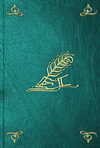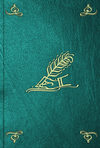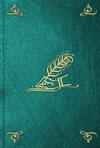Loe raamatut: «Private Letters of Edward Gibbon (1753-1794) Volume 2 (of 2)», lehekülg 30
604.
To the Hon. Maria Holroyd
Lausanne, Nov. 10, 1792.
In dispatching the weekly political journal to Lord Sheffield, my conscience (for I have some remains of conscience) most powerfully urges me to salute, with some lines of friendship and gratitude, the amiable secretary, who might save herself the trouble of a modest apology. I have not yet forgotten our different behaviour after the much lamented separation of October the 4th, 1791, your meritorious punctuality, and my unworthy silence. I have still before me that entertaining narrative, which would have interested me, not only in the progress of the carissima famiglia, but in the motions of a Tartar camp, or the march of a caravan of Arabs; the mixture of just observation and lively imagery, the strong sense of a man, expressed with the easy elegance of a female. I still recollect with pleasure the happy comparison of the Rhine, who had heard so much of liberty on both his banks, that he wandered with mischievous licentiousness over all the adjacent meadows. The inundation, alas! has now spread much wider; and it is sadly to be feared that the Elbe, the Po, and the Danube, may imitate the vile example of the Rhine: I shall be content, however, if our own Thames still preserves his fair character of
Strong without rage, without o'erflowing full
These agreeable epistles of Maria produced only some dumb intentions, and some barren remorse; nor have I deigned, except by a brief missive from my chancellor, to express how much I loved the author, and how much I was pleased with the composition. That amiable author I have known and loved from the first dawning of her life and coquetry, to the present maturity of her talents; and as long as I remain on this planet, I shall pursue, with the same tender and even anxious concern, the future steps of her establishment and life. That establishment must be splendid; that life must be happy. She is endowed with every gift of nature and fortune; but the advantage which she will derive from them, depends almost entirely on herself. You must not, you shall not, think yourself unworthy to write to any man: there is none whom your correspondence would not amuse and satisfy.
I will not undertake a task, which my taste would adopt, and my indolence would too soon relinquish; but I am really curious, from the best motives, to have a particular account of your own studies and daily occupation. What books do you read? and how do you employ your time and your pen? Except some professed scholars, I have often observed that women in general read much more than men; but, for want of a plan, a method, a fixed object, their reading is of little benefit to themselves, or others. If you will inform me of the species of reading to which you have the most propensity, I shall be happy to contribute my share of advice or assistance.
I lament that you have not left me some monument of your pencil. Lady Elizabeth Foster has executed a very pretty drawing, taken from the door of the green-house where we dined last summer, and including the poor Acacia, (now recovered from the cruel shears of the gardener,) the end of the terrace, the front of the Pavilion, and a distant view of the country, lake, and mountains. I am almost reconciled to d'Apples' house, which is nearly finished. Instead of the monsters which Lord Hercules Sheffield extirpated, the terrace is already shaded with the new acacias and plantanes; and although the uncertainty of possession restrains me from building, I myself have planted a bosquet at the bottom of the garden, with such admirable skill that it affords shade without intercepting prospect.
SOCIETY OF LADY E. FOSTER.
The society of the aforesaid Eliza, of the Duchess of Devonshire, &c. has been very interesting; but they are now flown beyond the Alps, and pass the winter at Pisa. The Legards, who have long since left this place, should be at present in Italy; but I believe Mrs. Grimstone and her daughter returned to England. The Levades are highly flattered by your remembrance. Since you still retain some attachment to this delightful country, and it is indeed delightful, why should you despair of seeing it once more? The happy peer or commoner, whose name you may assume, is still concealed in the book of fate; but, whosoever he may be, he will cheerfully obey your commands, of leading you from – Castle to Lausanne, and from Lausanne to Rome and Naples. Before that event takes place, I may possibly see you in Sussex; and, whether as a visitor or a fugitive, I hope to be welcomed with a friendly embrace. The delay of this year was truly painful, but it was inevitable; and individuals must submit to those storms which have overturned the thrones of the earth.
The tragic story of the Archbishop of Arles I have now somewhat a better right to require at your hands. I wish to have it in all its horrid details; and as you are now so much mingled with the French exiles, I am of opinion, that were you to keep a journal of all the authentic facts which they relate, it would be an agreeable exercise at present, and a future source of entertainment and instruction.
I should be obliged to you, if you would make, or find, some excuse for my not answering a letter from your aunt, which was presented to me by Mr. Fowler. I shewed him some civilities, but he is now a poor invalid, confined to his room. By her channel and yours I should be glad to have some information of the health, spirits, and situation of Mrs. Gibbon of Bath, whose alarms (if she has any) you may dispel. She is in my debt. Adieu; most truly yours.
605.
The Hon. Maria Holroyd to Edward Gibbon
Sheffield Place, November, 1792.
Your three letters received yesterday caused the most sincere pleasure to each individual of this family so highly favoured by you – but to none more than myself. I flatter myself that I despise general compliments as they deserve, but praise (tho' I fear, beyond my deserts) from one whose opinion I so highly value, and whose esteem I so much wish to gain, is more pleasing than I can describe, & I really think, thus encouraged, & with your example before me, to shew bad habits may be conquered. I had not neglected to make the collection of facts which you recommend, and which the great variety of unfortunate persons whom we see, or with whom we correspond, enables me to make.
As to the other part of your letter about my studies, I can only say, the slightest hint on that subject will be always received with the greatest gratitude, and attended to with the utmost punctuality. French history I am most acquainted with – English, I am ashamed to say, I am much less versed in. I have read Hume, but not since I came to years of discretion, & what is read as a task seldom is well attended to. I am now reading a certain work, in 6 Vols. Quarto or 12 Duodecimo, which I was acquainted with before, only by reading it after supper, frequently with long interruptions caused by Company, &c., & which only raised my curiosity to give it more attention. It would be Impertinence or at best but a Drop in the Ocean to add my mite to the opinion of the generality of the World, & say how much the Subject interests or the Style delights me. When this work is read thro', I intend to proceed with English history. I again repeat, if you condescend to favour me with any directions on this subject, I shall follow them with the greatest pleasure; but if you should not, I am much flattered that you should desire to hear from me, & should have sent you the horrid account of the massacre aux Carmes before, if I had thought you would have been desirous of it. I have not seen the details in any newspaper, & one of the eight Priests, who dined here, & had escaped from the massacre, related the whole with such simplicity & feeling, as to leave no doubt of the truth of all he said.
MURDER OF THE ARCHBISHOP OF ARLES.
On the 2d of Sepber they went into the garden, as usual, to walk at five o'clock in the evening. They expressed their surprize at several large pits, which had been digging for two or three days past. They said to each other, "The day is almost spent, & yet Manuel277 told a person who interceded for us, last Thursday, that on the Sunday following not one should remain in captivity – we are still Prisoners." Soon after, they heard shouts, and some musquet shots were fired into the Garden. A number of National Guards, some Commissaires de Sections, & several Marseillois, rushed in. The unhappy victims who were dispersed about the Garden, assembled under the Walls of the Church, not daring to enter, least it should be polluted with blood. One, who was behind the rest, was shot dead. Point de coups de fusil said some of the Chiefs of the assassins, thinking this death too merciful. A number of them called for the Archbishop of Arles,278 & insisted that he should be given up to them, the Priests all crowded round him, & determined to defend him with their Lives. The Archbishop then said, "Let me pass; if we must all perish, it is of little consequence whether I die first or not, & if my death will appease them, is it not my duty to preserve your Lives at the expense of my own?" He asked the eldest of the Priests to give him Absolution – he knelt to receive it, & when he rose, advanced, with his arms crossed on his breast, towards the People. His appearance was so dignified & noble, that for ten minutes not one of these Wretches had courage to raise their hand against him. They reproached each other with cowardice & advanced – one look from the venerable Prelate struck them with involuntary awe, & they retired. At last, one of the assassins struck off his Cap with a Pike – their fury returned when they saw respect once violated, & another struck him on the head with a Sabre, & laid open his scalp. The Archbishop only said, "O mon Dieu!" & put up his right hand to his eyes. A second blow cut off this hand – he repeated his exclamation & raised the other. A third stroke left him sitting, & a fourth extended him lifeless, when all the Miscreants pressed forwards, to bury their Poniards in his bosom.
The Priests all agreed that the Archbishop of Arles was one of the most amiable men in France – his only crime was having parted with most of his private fortune to support the necessitous Clergy of his Diocese, since the beginning of the Revolution. When he was murdered, the National Guards made all the Priests go into the Church, telling them they should appear, one after another, before the Commissaires du Section, who would try them and determine their fate. They had hardly entered, before the People impatiently called for them to shew themselves – upon which, all kneeling before the Altar, they received Absolution from the Bp of Beauvais – & then, two by two, passed before one of the commissaires, who did not question, but only counted his victims. In this manner, perished 120 Priests, amongst whom were the Bishops of Beauvais and Xaintes, both of the Rochefoucauld family.279 Our friends escaped by getting over the Wall.
I am afraid I have tired your patience, & that you did not expect such a tedious history. Made. d'Hénin & Pauline are at Boulogne; they have gained nothing by going there, & are afraid they may find it difficult returning to England. The seal of the Nation is put on all Made. d'Hénin's effects; she is not able to keep a single servant – she says, Pauline & she must wait on each other. Papa, who is more alarmed than I ever saw him, will write to you soon, politically. Mama will likewise answer your letter, & in the mean time desires many thanks for it. Will you say everything affectionate to Angletine for her letter? I feel sincerely for the situation of that family, & if you can send any good news of M. de Severy's amendment, I trust you will write. It was particularly kind of Angletine to write when her mind must be so ill at ease – but it is not flung away upon me. I am anything but une Ingrate. Mrs. Moss is here, & speaks with delight of your house, your terrace, & of the great civility you showed her. Judge if Lausanne is ever the subject of our conversation.
We left Louisa & Aunt at Bath very well, they both desire to be remembered to you when we wrote. Mrs. Gibbon looks as well as ever, but is really very unwell.
606.
Lord Sheffield to Edward Gibbon
Bristol, 14th Nov., 1792.
A FOOLISH GAME IN IRELAND.
I snatch an interval likely to be very short, to acknowledge you have some merit in a 14th day epistle, although you fasted as to your 7th day. I was glad to hear of the agreement on the subject of Geneva. As the French troops were immediately to return 10 leagues, and before the evacuation, I think it honourable, but my political barometer never was so low. During the last 35 years on no occasion it had materially sunk. It never experienced any great depression till the wonderful and in some degree inexplicable phenomena of the later part of last September. I had some hope that Europe would see the necessity of making a common cause against the Disturbers of the World. But I have not a ray of hope. The failure of the combined army has of course encouraged and increased a bad spirit in this country, but it has not as yet shewn itself except in some towns. And in such, mischief always begins. The respectable and considerable men of both parties among my constituents are right. Government had risked a foolish game in Ireland, playing Roman Catholics against Protestants, and openly supporting the former, granting too much, and giving further hopes, which has produced sedition and brought them to the brink of rebellion, but within a few weeks it has been determined to go no farther and to support the Protestant Ascendency – better late than never, but some knocks probably will ensue.
I believe I forgot to assure you in my last that Newspaper account of our friend Lord L.280 and his acceptance of Seals is premature, and that there is no prospect of such an event unless with the concurrence and accession of the Mass of the party. I rather suspect some of our friends have more of the shew than the reality, of wishing or expecting, or promoting healthy conjunction of parties – but they are few.
I scolded you about the Madeira because I thought it lost thro' your neglect of writing, but I have the pleasure of finding that it was only delayed, and is now on its road. So writes Muligan's correspondent in Holland. I shall send this to Maria to finish. My eyes are very weak.
I do not know what to add to Papa's croaking Epistle, except to ask if you will give us an Asylum at Lausanne when this country is in the state of France. If you should answer in the affirmative, I am afraid you would make me an enemy to my country and wish it very ill. I think Papa very ungrateful for your very great kindness and attention in writing so frequently – at a time so very interesting, but I believe he is afraid of praising you too much, least you should think you have done enough. If you were a witness of the pleasure your letters give all the family, I think you would not talk of sinking into a long and irreproachable silence. Mama assures me you will not write to me. Pray make her say the thing that is not, for once in her life. We leave Bath next Sunday, after having enjoyed the gaieties of the place a fortnight. Louisa is to remain here all the Winter. She desires to be particularly remembered to you. Switzerland is our daily subject of conversation and regret. Witness our hands this 15th day of November.
Maria Josepha Holroyd,
Louisa Dorothea Holroyd.
607.
To Lord Sheffield
Lausanne, Nov. 25th, 1792.
*After the triple labour of my last dispatch, your experience of the creature might tempt you to suspect that it would again relapse into a long slumber. But, partly from the spirit of contradiction, (though I am not a lady) and partly from the ease and pleasure which I now find in the task, you see me again alive, awake, and almost faithful to my hebdomadal promise. The last week has not, however, afforded any events deserving the notice of an historian. Our affairs are still floating on the waves of the convention, and the ratification of a corrected treaty,281 which had been fixed for the 20th, is not yet arrived; but the report of the diplomatic committee has been favourable, and it is generally understood that the leaders of the French Republic do not wish to quarrel with the Swiss. We are gradually withdrawing and disbanding our militia. Geneva will be left to sink or swim, according to the humour of the people; and our last hope appears to be, that by submission and good behaviour we shall avert for some time the impending storm.
FLIGHT OF A FRENCH GENERAL.
A few days ago, an odd incident happened in the French army; the desertion of the general. As the Neckers were sitting, about eight o'clock in the evening, in their drawing-room at Rolle, the door flew open, and they were astounded by their servant's announcing Monsieur le General de Montesquiou! On the receipt of some secret intelligence of a decrét d'accusation, and an order to arrest him, he had only time to get on horseback, to gallop through Geneva, to take boat for Coppet, and to escape from his pursuers, who were ordered to seize him alive or dead. He left the Neckers after supper, passed through Lausanne in the night, and proceeded to Berne and Basle, whence he intended to wind his way through Germany, amidst enemies of every description, and to seek a refuge in England, America, or the moon. He told Necker, that the sole remnant of his fortune consisted in a wretched sum of twenty thousand livres; but the public report, or suspicion, bespeaks him in much better circumstances. Besides the reproach of acting with too much tameness and delay, he is accused of making very foul and exorbitant contracts:282 and it is certain that new Sparta is infected with this vice beyond the example of the most corrupt monarchy. Kellerman283 is arrived to take the command; and it is apprehended that on the first of December, after the departure of the Swiss, the French may request the permission of using Geneva, a friendly city, for their winter quarters. In that case, the democratical revolution, which we all foresee, will be very speedily effected.284
I would ask you, whether you apprehend there was any treason in the Duke of Brunswick's retreat, and whether you have totally withdrawn your confidence and esteem from that once-famed general? Will it be possible for England to preserve her neutrality with any honour or safety? We are bound, as I understand, by treaty, to guarantee the dominions of the King of Sardinia and the Austrian provinces of the Netherlands. These countries are now invaded and over-run by the French. Can we refuse to fulfil our engagements, without exposing ourselves to all Europe as a perfidious or pusillanimous nation? Yet, on the other hand, can we assist those allies, without plunging headlong into an abyss, whose bottom no man can discover? But my chief anxiety is for our domestic tranquillity; for I must find a retreat in England, should I be driven from Lausanne. The idea of firm and honourable union of parties pleases me much; but you must frankly unfold what are the great difficulties that may impede so salutary a measure: you write to a man discreet in speech, and now careful of papers. Yet what can such a coalition avail if Fox be detestable and Pitt democratical? Where is the champion of the constitution? Alas, Lord Guildford! I am much pleased with the Manchester ass. The asses or wolves who sacrificed him have cast off the mask too soon; and such a nonsensical act must open the eyes of many simple patriots, who might have been led astray by the specious name of reform. It should be made as notorious as possible. Next winter may be the crisis of our fate, and if you begin to improve the constitution, you may be driven step by step from the disfranchisement of Old Sarum to the king in Newgate, the lords voted useless, the bishops abolished, and a house of commons without articles (sans culottes).
MADAME DE STAEL.
Necker has ordered you a copy of his royal defence, which has met with, and deserved, universal success. The pathetic and argumentative parts are, in my opinion, equally good, and his mild eloquence may persuade without irritating. I have applied to this gentler tone some verses of Ovid (Metamorph. 1. iii. 302, &c.285) which you may read. Madame de Stael has produced a second son. She talks wildly enough of visiting England this winter.* Her friend the Vicomte de Narbonne is somewhere about Dorking. If you could shew him any civilities she would thank us both. She is a pleasant little woman.
No news from Basil or Ostend of my Madeira. Pray contrive to get me a mortgage; there is nothing like land or landed security. Poor Mrs. G. in such a state! I can only wish her an easy dismission. I wish the same to poor Severy, whose *condition is hopeless. Should he drag through the winter, Madame de S. would scarcely survive him. She kills herself with grief and fatigue. What a difference in Lausanne! I hope triple answers are on the road. I must write soon; the times will not allow me to read or think. Ever yours.*
No. 6 (I believe). Send me a list of these letters, with their respective dates.
Quà tamen usque potest, vires sibi demere tentat.Nec, quo centimanum dejecerat igne Typhœa,Nunc armatur eo: nimiùm feritatis in illo.Est aliud levius fulmen; cui dextra CyclopumSævitiæ, flammæque minus, minus addidit iræ:Tela secunda vocant Superi.
[Закрыть]



















